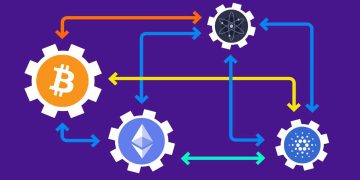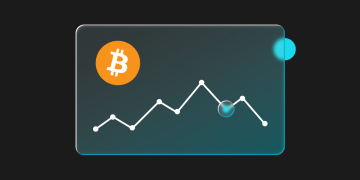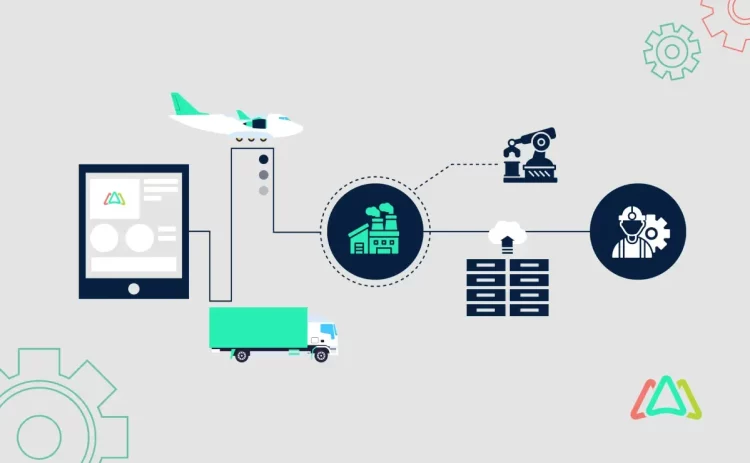In today’s rapidly evolving global economy, supply chain finance (SCF) plays a crucial role in optimizing liquidity, improving efficiency, and mitigating risks in the supply chain ecosystem. Traditional SCF methods often involve complex intermediaries, extensive paperwork, and time-consuming manual processes, which can lead to inefficiencies, fraud risks, and delayed transactions. However, with the rise of blockchain technology, particularly Chain Core, the landscape of supply chain finance is undergoing a transformative shift. By leveraging smart contracts, Chain Core offers a decentralized, transparent, and automated solution to streamline supply chain financial processes.
Introduction to Supply Chain Finance
Supply chain finance refers to a set of financial tools and solutions used to optimize the flow of capital across the supply chain. It helps businesses access working capital by improving liquidity, reducing financial risks, and facilitating faster payments between buyers and suppliers. SCF typically involves:
- Reverse Factoring (Supply Chain Financing): A buyer enables their supplier to receive early payment on invoices at a discounted rate, improving the supplier’s cash flow.
- Inventory Financing: Businesses use inventory as collateral to secure short-term loans.
- Receivables Financing: Businesses use their outstanding invoices to obtain funding from lenders.
Despite the obvious benefits, traditional SCF solutions come with several drawbacks:
- Manual Processes: Much of the SCF process still involves paperwork and human intervention, leading to errors and inefficiencies.
- High Transaction Costs: Intermediaries, such as banks or factoring companies, add fees that raise the cost of financing.
- Lack of Transparency: Traditional SCF systems often provide limited visibility into the financial health of suppliers or the progress of transactions.
Blockchain technology, specifically Chain Core, addresses these challenges by offering a decentralized platform where financial transactions can be executed quickly, securely, and transparently.
What is Chain Core?
Chain Core is a blockchain infrastructure platform designed for enterprise use, offering high scalability, security, and performance. Built for both public and private blockchain networks, Chain Core provides a seamless environment for developing decentralized applications (dApps) that can handle complex business processes. It allows enterprises to implement smart contracts, which can automate workflows and trigger actions based on predefined conditions, reducing the need for intermediaries and manual intervention.
In the context of supply chain finance, Chain Core provides an ideal solution for creating efficient, transparent, and automated processes that improve liquidity, minimize fraud risk, and enhance trust among supply chain partners.
Smart Contracts and Their Role in Supply Chain Finance
A smart contract is a self-executing contract with the terms of the agreement directly written into lines of code. These contracts automatically execute, control, or document actions based on conditions defined in the contract, without requiring intermediaries. Smart contracts are inherently secure, transparent, and auditable, which makes them an ideal fit for supply chain finance.
Key benefits of using smart contracts in supply chain finance include:
- Automation of Financial Transactions: Smart contracts can automatically execute transactions between suppliers, buyers, and financiers when predefined conditions are met (e.g., invoice approval, payment terms, etc.).
- Elimination of Intermediaries: By automating processes, smart contracts remove the need for intermediaries such as banks, reducing transaction fees and administrative overheads.
- Increased Transparency: Every action performed on the blockchain is time-stamped and immutable, offering real-time visibility into the entire financial process. This transparency helps improve trust among supply chain partners.
- Improved Efficiency: The automation of financial transactions reduces manual errors, delays, and paperwork, improving overall operational efficiency.
- Reduced Risk of Fraud: The immutability and transparency of the blockchain make it much harder to manipulate data, reducing the risk of fraud and disputes.
How Chain Core Revolutionizes Supply Chain Finance with Smart Contracts
Chain Core offers several advantages that can revolutionize the way supply chain finance operates. By leveraging its robust blockchain infrastructure and smart contract capabilities, businesses can optimize and streamline their SCF operations in the following ways:
1. Invoice Financing Automation
Invoice financing is one of the most common forms of supply chain finance, where a supplier uses an outstanding invoice to secure working capital from a financier. However, the process is often slow and cumbersome, with multiple intermediaries involved, leading to delays and additional costs.
With Chain Core, businesses can automate the invoice financing process through smart contracts. When a supplier issues an invoice, a smart contract can be triggered once the buyer confirms receipt of goods. This contract will automatically verify the terms of the invoice and approve the early payment, which can then be disbursed by the financier. The entire process is automated and recorded on the blockchain, making it faster, cheaper, and more secure.
Advantages:
- Fast approval and disbursement of funds
- Reduced reliance on intermediaries
- Enhanced transparency and traceability of transactions
2. Supply Chain Payments
Payment delays in supply chains can lead to liquidity issues for suppliers, especially in cases where buyers take a long time to pay. By using Chain Core, companies can implement automated payment systems that trigger payments when goods are delivered or invoices are approved. This reduces the time taken for payments to be processed and ensures that suppliers are paid on time.
Smart contracts can also be designed to include terms such as payment discounts or penalties, which can be automatically calculated and executed once conditions are met. This ensures compliance with agreed terms without the need for manual intervention.
Advantages:
- Faster payments
- Automation of payment terms (e.g., early payment discounts, penalties)
- Enhanced liquidity for suppliers

3. Trade Finance
Trade finance often involves complex paperwork, lengthy processing times, and a high risk of fraud. Chain Core simplifies trade finance by automating and recording every step of the trade process, from the issuance of letters of credit (LCs) to the final payment settlement. Smart contracts can automatically trigger actions such as payment release when shipping documents are verified, reducing the reliance on human intermediaries.
With Chain Core, banks and other financial institutions can offer trade financing solutions that are transparent, efficient, and less susceptible to fraud. The decentralized nature of blockchain also ensures that the entire process is auditable, with real-time access to transaction data.
Advantages:
- Real-time tracking of trade transactions
- Reduced risk of fraud
- Automation of payment and documentation processes
4. Supplier Financing
Supplier financing solutions, such as reverse factoring, allow suppliers to receive early payment from a financier at a discounted rate. However, traditional supplier financing processes often involve multiple parties, making them slow and expensive.
Using Chain Core, businesses can set up automated supplier financing programs where smart contracts handle the entire financing process. When an invoice is issued, the smart contract automatically verifies the buyer’s approval, triggers the payment to the supplier, and ensures that the financier is paid back once the buyer settles the invoice.
Advantages:
- Simplified financing process for suppliers
- Reduced costs for financing and administration
- Transparency in the transaction process
5. Real-Time Monitoring and Analytics
One of the significant advantages of blockchain is its ability to provide real-time, immutable data about every transaction. With Chain Core, businesses can gain access to a transparent, real-time view of their entire supply chain finance operation. This enables better decision-making, quicker identification of financial bottlenecks, and improved risk management.
For example, businesses can track the status of invoices, payments, and financing in real-time, gaining insights into cash flow and liquidity. This can be especially helpful for managing working capital and identifying areas for improvement.
Advantages:
- Enhanced visibility into financial transactions
- Improved decision-making through data analytics
- Early identification of potential risks or bottlenecks
Case Study: Chain Core in Action
To illustrate the impact of Chain Core on supply chain finance, let’s consider the case of a global manufacturer that uses Chain Core for its supply chain operations. The company has multiple suppliers, each with different payment terms. Using Chain Core, the company can automate the financing of invoices from suppliers, ensuring that they are paid on time without the need for manual intervention.
When a supplier issues an invoice, a smart contract is triggered. The contract verifies the delivery of goods, the approval of the invoice, and automatically transfers the payment to the supplier, reducing the payment cycle from 30 days to just a few hours. Additionally, the company uses Chain Core for inventory financing, allowing them to obtain short-term loans by using their inventory as collateral, improving working capital management.
This seamless, automated process reduces administrative costs, mitigates risks, and enhances the relationship between the company and its suppliers.
Challenges and Future Outlook
Despite the numerous benefits, there are challenges in adopting Chain Core and smart contracts in supply chain finance. These include:
- Adoption Barriers: Many businesses are still reliant on traditional systems, and transitioning to blockchain-based solutions may require significant investment in infrastructure and training.
- Regulatory Uncertainty: The regulatory environment surrounding blockchain and smart contracts is still evolving, and businesses must ensure that they comply with local and international regulations.
- Integration with Legacy Systems: Many businesses still use legacy systems for supply chain management, and integrating blockchain solutions with these systems can be complex.
However, as blockchain technology matures and becomes more widely adopted, Chain Core will likely continue to play a pivotal role in reshaping supply chain finance. The future of SCF lies in automation, transparency, and the elimination of intermediaries, and Chain Core is at the forefront of this transformation.
Conclusion
Chain Core represents a paradigm shift in the world of supply chain finance. By leveraging smart contracts, blockchain technology can automate complex financial processes, reduce costs, increase transparency, and improve operational efficiency. The adoption of Chain Core enables businesses to enhance liquidity, mitigate risks, and streamline payments
, ultimately driving greater collaboration and trust within supply chains.
As blockchain technology continues to evolve, Chain Core has the potential to reshape the global supply chain finance landscape, providing businesses with innovative solutions that can support sustainable growth, foster collaboration, and increase overall supply chain resilience.

















































